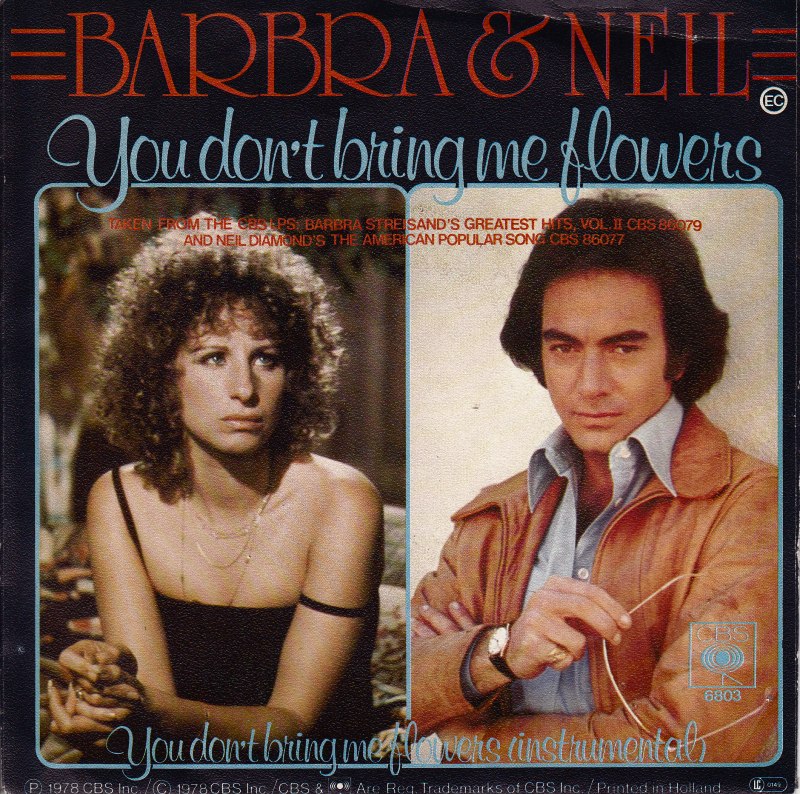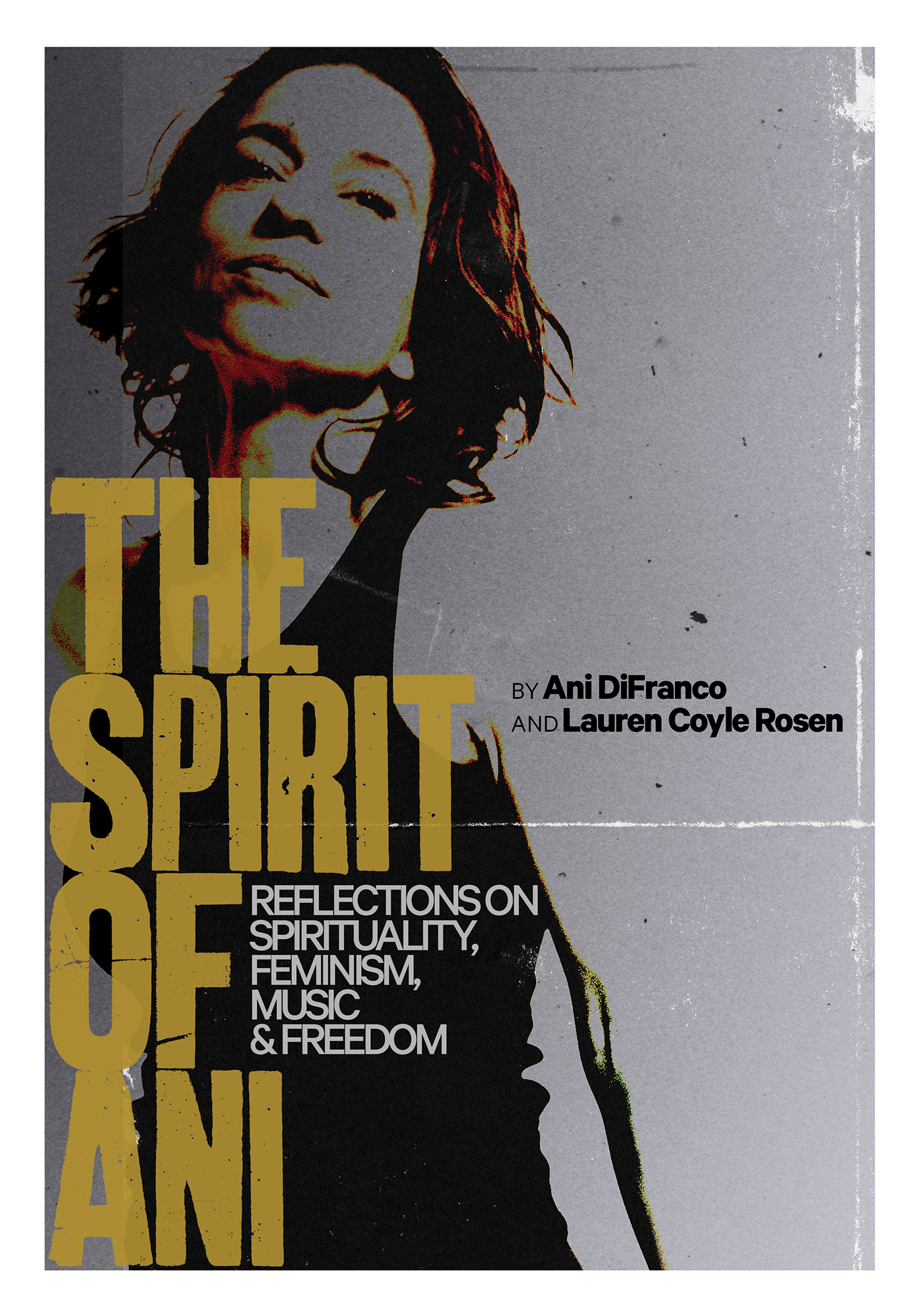In The Number Ones, I'm reviewing every single #1 single in the history of the Billboard Hot 100, starting with the chart's beginning, in 1958, and working my way up into the present.
Barbra Streisand & Neil Diamond's "You Don't Bring Me Flowers"
HIT #1: December 2, 1978
STAYED AT #1: 2 weeks
For years, we've been living in an era of emailed-in guest-verses and after-the-fact stapled-together remixes. That's how hit music is made. But in the late '70s, musicians still recorded, as often as not, in rooms together. Neil Diamond and Barbra Streisand's huge duet "You Don't Bring Me Flowers" is a typically bombastic middle-of-the-road '70s ballad, and there's nothing that really sets it apart beyond the star power of its singers and the strange circumstances of its creation. In its own weird way, though, "You Don't Bring Me Flowers" might be influential, if only because it was probably, in its day, the least organic #1 single ever created.
https://youtube.com/watch?v=ohU38WJV45c
Neil Diamond and Barbra Streisand actually did record "You Don't Bring Me Flowers" in a room together. They were also old friends. They'd both gone to Brooklyn's Erasmus High School, and they'd sung in the school choir together. But neither one really intended to sing "You Don't Bring Me Flowers" as a duet. Instead, a strange set of circumstances brought them together.
In the years after he hit #1 with 1972's "Song Sung Blue," Neil Diamond was not exactly a hit machine. His singles did well enough, but he only got into the top 10 once in the next seven years: 1974's "Longfellow Serenade," which peaked at #5. (It's a 5.) Instead, Diamond became a huge live draw and a sort of man-about-town. He took on projects like scoring the ill-fated 1973 film version of Jonathan Livingston Seagull. In its original form, "You Don't Bring Me Flowers," like that score, was something that Diamond wrote for the screen.
Diamond had met the TV producer Norman Lear, the man behind shows like All In The Family and Sanford And Son, at a party. Diamond told Lear that he wanted to record a TV theme for him. Lear was working on a new sitcom called All That Glitters, a soap opera parody that took place in a world where women went out and worked while men stayed at home with the kids. Diamond, at Lear's request, got together with the married-couple songwriting duo of Alan and Marilyn Bergman. Together, they came up with vaguely tongue-in-cheek lyrics for a ballad. Diamond's narrator acts like a stereotypical woman, upset that his partner isn't showing the same romantic flair that she once did.
The original version of "You Don't Bring Me Flowers" was only 45 seconds long, and Norman Lear didn't even use it. All That Glitters went through a change of tone in its development, and apparently the song didn't fit the show anymore, so Lear replaced it with a Kenny Rankin track. All That Glitters wasn't a success anyway; it was only on the air for one season. But Diamond started singing his unused sitcom theme live, and audiences seemed to like it, so he and the Bergmans went back and wrote a longer version of the song.
Diamond's solo version of "You Don't Bring Me Flowers" first showed up on his 1977 album I'm Glad You're Here With Me Tonight. Then Diamond's old classmate Streisand, in the midst of a crazy stage-and-screen run as one of America's most popular entertainers, covered the song, using it on her 1978 LP Songbird. But those two versions of the song weren't singles, and "You Don't Bring Me Flowers" didn't take off until a Louisville radio producer made a primitive mash-up out of those two recordings.
Gary Guthrie was working at the Louisville adult-contemporary AM station WAKY, and he was going through a divorce. His ex loved both versions of "You Don't Bring Me Flowers," and he was spending a lot of long nights at work, so he spliced tapes together, making a remix of "You Don't Bring Me Flowers" that switched back and forth between the Diamond and Streisand versions. Guthrie meant that remix as a gift for his ex, but then the station started playing that version, and the adult-contemporary fans of Louisville evidently went nuts for it.
Soon, other stations were putting together their own remixed versions of "You Don't Bring Me Flowers," and record stores were calling the stations, wanting to know how they could sell this version of the song. Guthrie sent his remix to Columbia, which was both Diamond and Streisand's label. Within a couple of weeks, Diamond and Streisand agreed to get together to record a new version. (Later on, Guthrie sued the label, claiming that he hadn't been paid for his idea.)
The weird thing about the final version of "You Don't Bring Me Flowers" is that it still sounds like a spliced-together remix. Streisand and Diamond might've known each other for decades, but they're wildly different singers. Diamond is a barker, a guy who emotes by chest-out shouting. Streisand is a diva, and she bludgeons every song into submission by singing the absolute hell out of every note. "You Don't Bring Me Flowers" isn't a natural duet; those two don't sound like they're singing to each other. Instead, they're both lamenting the cold, remote end of a relationship in their own extremely divergent ways. Even when the two are singing the same words together, they aren't even coming close to harmonizing.
Diamond's producer, the Four Seasons member Bob Gaudio, says that Diamond and Streisand were "nose to nose" when they recorded the duet, singing over nothing but a piano. Diamond and Streisand were both busy, so the session was a last-minute rush-job. Gaudio wasn't sure how he'd record or produce the duet, and the members of Diamond's band waited outside in the hallway in case Gaudio thought they were needed. But Gaudio figured that he'd captured something magic in that room.
If Gaudio had just left the song as a voices-and-piano situation, maybe he would've had something, though I doubt it. Instead, he later added gloopy melodramatic strings all over the song, pushing it even further into the realm of tackily sentimental fluff. Even when judged against other '70s easy-listening heartbreak ballads, "You Don't Bring Me Flowers" is a tough hang.
Streisand and Diamond both have cool voices, and they both try hard, but they sing past each other. Streisand keens and quavers and does her elegant-cursive curlicue thing. Diamond declaims. Streisand sounds halfway-convincingly heartbroken. Diamond mostly just sounds pissed off. Along the way, we lose all sense that this was ever supposed to be a playful sitcom song. The end result expresses nothing. It just fills the air with tinny, generic grandeur.
It was huge, of course. Streisand was in her imperial period, and maybe people just liked hearing her share the spotlight with somebody. Diamond, already doing quite well for himself, got a nice little career bump out of it. Diamond kept landing big hit singles well into the early '80s, though he never got back to #1 again. (Not as an artist, anyway. He'll be back in this column as a songwriter.) Streisand, meanwhile, continued to reign for a while longer. We'll see her again in this column.
GRADE: 2/10
BONUS BEATS: Here's LA underground-rap fixtures the Grouch and Eligh sampling "You Don't Bring Me Flowers" on their 2009 collaboration "No Flowers":






